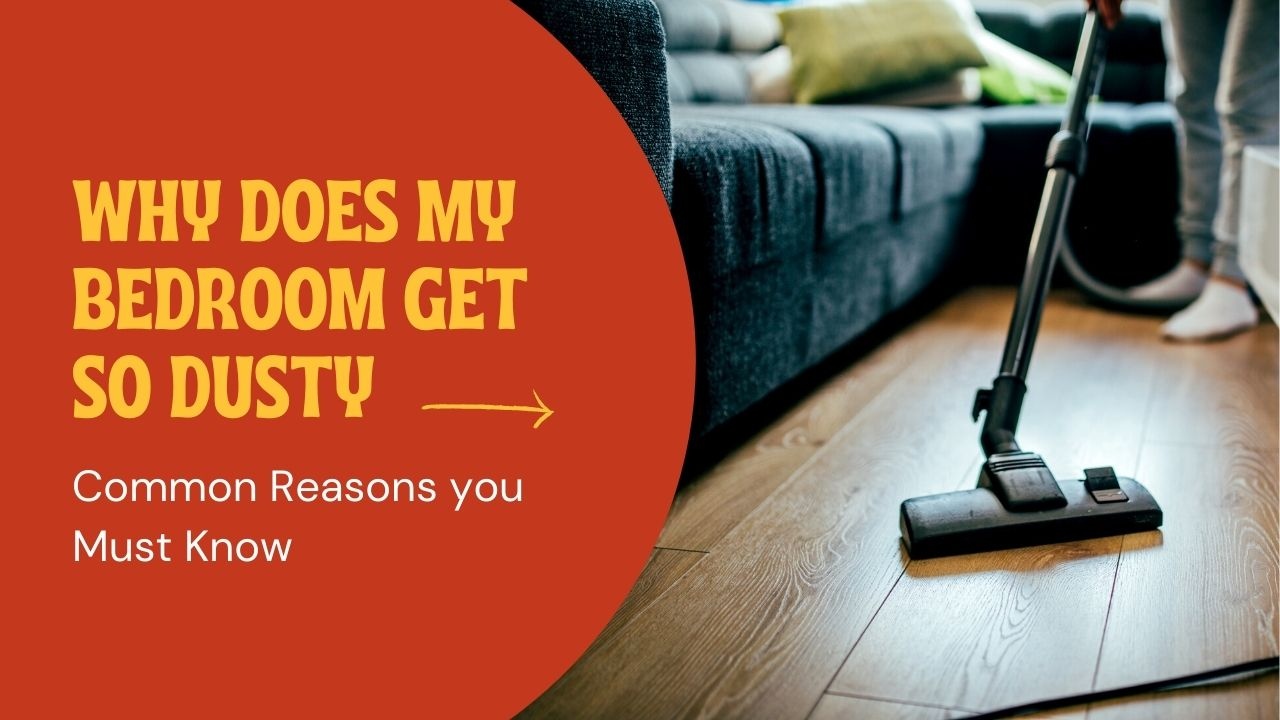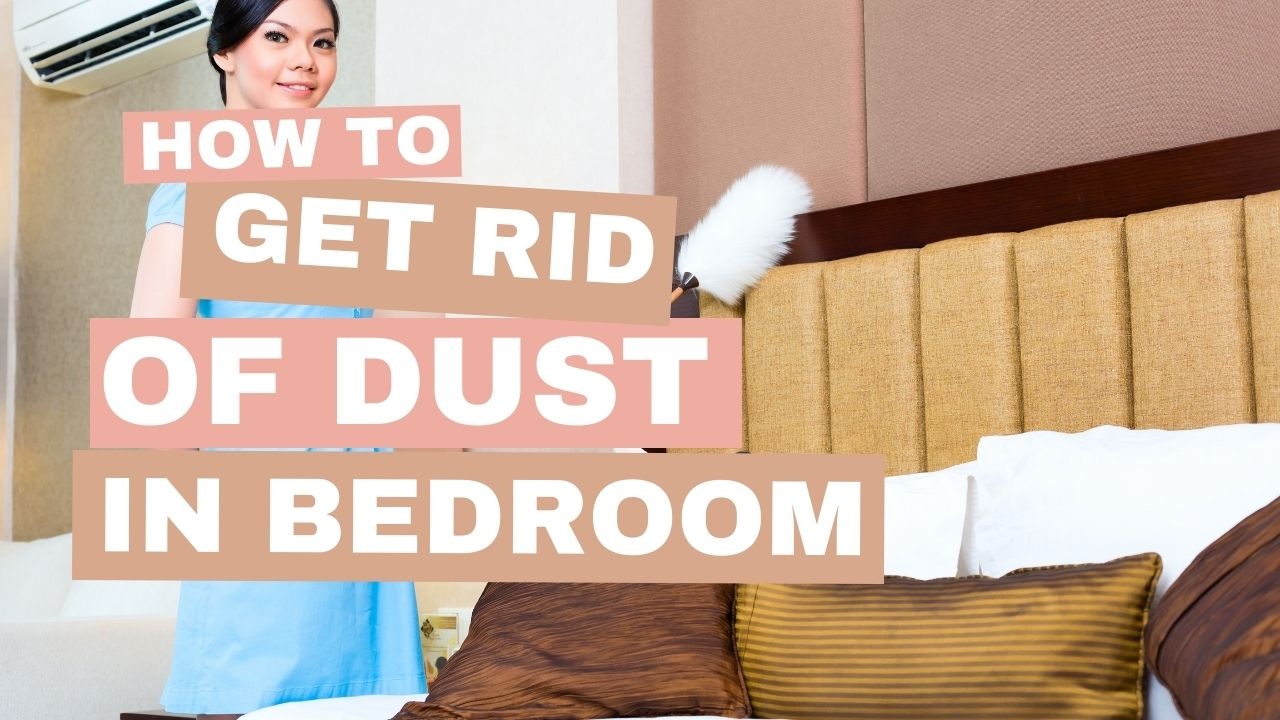Dust is the worst enemy of your bedroom. Dust can cause allergies, damage your family’s health, and even reduce the value of your home. It’s always a challenge to keep the dust out of your bedroom. But sometimes, it seems like you can’t avoid getting dust in there.

5 Common Sources of Dust in Bedrooms
If you’ve ever been curious about why your bedroom gets so dusty, here are some answers.
1. Tiny Bits of Dirt
Dirt from walking around your inside carpeting and flooring is not something you want to breathe in, and this particular microscopic dust is often referred to as “pixie dust” because of its size. According to https://airpurifiersportal.com/, it’s a major source of airborne particles when trying to remove them from your bedroom since it’s trapped within the fibers of your old wool blankets and carpets.
2. Human Skin Cells
Not only do people shed dead skin cells and hair, but we also turn on the ordinary humidity in our homes. This can cause the tiny particles to be released from your skin quicker and convert from a dormant state into an actively shedding one.
The indoor environment is already saturated with various materials that attract dust. For something to accumulate, it’s going to take an outside force or push to get things moving around inside of your bedroom space. This point relates to why some rooms get filthy quickly, whereas others may not have as many airborne issues.
3. Pet Dander and Hair
Would you believe that your dog’s fur and dander are responsible for many of the dust particles in your bedroom? Human and animal dander can permeate fabrics like couch cushions, futons, carpeting, curtains, and carpets.
When particles either come off of animals or from deep under rugs, it’s quickly carried throughout the environment and ends up inside our homes. If your pets sleep on multiple surfaces such as dog beds, pet pads, or blankets without constantly washing them, then this could be another contributor to hair-ball-induced dust issues.
Read Also:
4. Leaky windows
When it comes to windows, the condensation on glass and air movement are major contributors to dust accumulation. Some materials such as glass and plastic trap water droplets while they cool down after being heated by sunlight or infant heaters. This water produces small dust particles on its surface that settle on carpets, furniture, pillows, and walls.
Windows with wooden frame material accumulate dead skin cells and dandruff closely together in the frames maze when used for sleeping, especially if you have pets at home. In addition to producing dander in your room, this breeding ground for allergens can cause wood particles to enter your bedding and furniture.
5. Outdoor Particles
These are the biggest offenders for dust pollution in your bedroom. Outdoor particles, such as grass and wind from running the vacuum, enter your bedroom in the dust as well as anything you touch inside.
For example, if you use a tissue to wipe something off your desk or furniture surface (or just floss), it ends up with fibers left on it, which can accumulate dust over time. If nothing is touching those surfaces, but they’re still dusty, this is a clear sign that the room needs to be cleaned as soon as possible.
How to Get Rid of Dust in Bedroom
Although it may seem impossible, there are many things you can do to rid your bedroom of these pesky particles. Here’s how you can clean out the dust from your bedroom:
Vacuum or Mop Dusty Surfaces
As mentioned earlier, even if there isn’t a lot of surface dirt on a particular area, this doesn’t mean that it isn’t contributing to the overall dust problem in general.
Therefore, vacuuming and mopping up stubborn small pieces with a brush will clean the majority of debris from those surfaces.
Wash All bedding and linens
Dirty clothes can cause particles to settle onto your pillows, blankets, and sheets. If something is dirty but in good enough shape that it doesn’t have a huge amount of dust accumulation (even if there are several bigger layers underneath), then doing washing in hot water with bleach or using an antifungal cleaner can make all the difference for preventing the growth of black mold.
Use an Air Purifier
If you’re looking to reduce the amount of dust in your bedroom, you need to invest in an air purifier. The most important thing is to get a unit that can ideally clean the air as much as possible. The second is to ensure that it can be operated at relatively low usage levels.
If small particles are floating in the air, how can you expect your air purifier to remove them? You don’t need a giant unit with plenty of power and coverage area. A more suitable size would have all those features too without being so large – especially if space inside your home is limited!
Remove Clutter
Get rid of all that stuff that you’ve accumulated in your bedroom. Remove clothes, stacks of books, and other paraphernalia, so there is less clutter to accumulate dust on when they are out in the open.
Also, get rid of any carpets or rugs as they can accumulate dust and slowly transfer it throughout the house. As much as possible, keep things off the floor, even if they can be stashed away in boxes or closets – this way, more surface area becomes available for airflow to circulate through your room.
Keep the Door Shut
When you open the door to these rooms, dust particles are released into the air that can then accumulate on everything around your doorway. So make sure to keep your bedroom door shut except when entering and leaving. And take all of your shoes off before entering so as not to kick up any meaningful amounts of dirt across the room’s surface.
Conclusion
all in all, dust is one of the biggest contributors to indoor air pollution. It can cause respiratory issues and aggravate allergies, to name a few potential side effects.
This is why it’s so important to keep your bedding, clothes, and belongings away from your home’s regular traffic. By storing as much stuff as you can out of sight in a dry, airtight location, you will drastically reduce the amount that ends up being breathed in.










